
You've secured a rental or are buying a new home, but now you have to figure out what to pack first when moving house. If you don't know, don't panic.
I've moved 12 times, including internationally and interstate, and sometimes twice in one year. My parents rented their homes when I was little, so by the time I was eight, I was helping pack things up annually, and I have become an expert in not just packing up to move, but doing it well.
The most vital things you need to know beyond having a moving house checklist are to start your packing as early as possible, and have multiple streams going on. This will include the things you will need till the very last minute, things you'll need to access first in your new home, and committing to decluttering as you go. This packing order, alongside labeling each box well, will also be key to keeping your sanity!
What to pack first when moving house
There's a good reason moving home is one of the top most stressful life events alongside the death of a loved one and divorce. The task is enormous, you will still need to use some things right up to the last minute, and it's so easy to lose track of things you'll need immediately on the other side.
That's why you should start by packing up the non-essentials.
Nikolay Yanakiev, of Fantastic Removals has been packing and moving clients since 2018. He says, 'Deciding what to pack first when moving house is the kind of thing that separates a stressful move from a smooth one. I’ve seen all kinds of moves over the years, and the ones that go the best are always the ones where the packing is done in strategic batches with a proper timeline.
'To break it down, you’ll need to work step by step, from two months before hand, to the day of the move. You’ll need to know what to pack first, what can wait, and how to avoid chaos.'
Here's how to keep your belongings in check as the countdown to Moving Day barrels towards you. The packing process is also the perfect time to do some top-notch decluttering as you go, so you don't expend energy and resources packing items that no longer serve a purpose for you, your lifestyle, or your new home.
What to pack two months before moving home
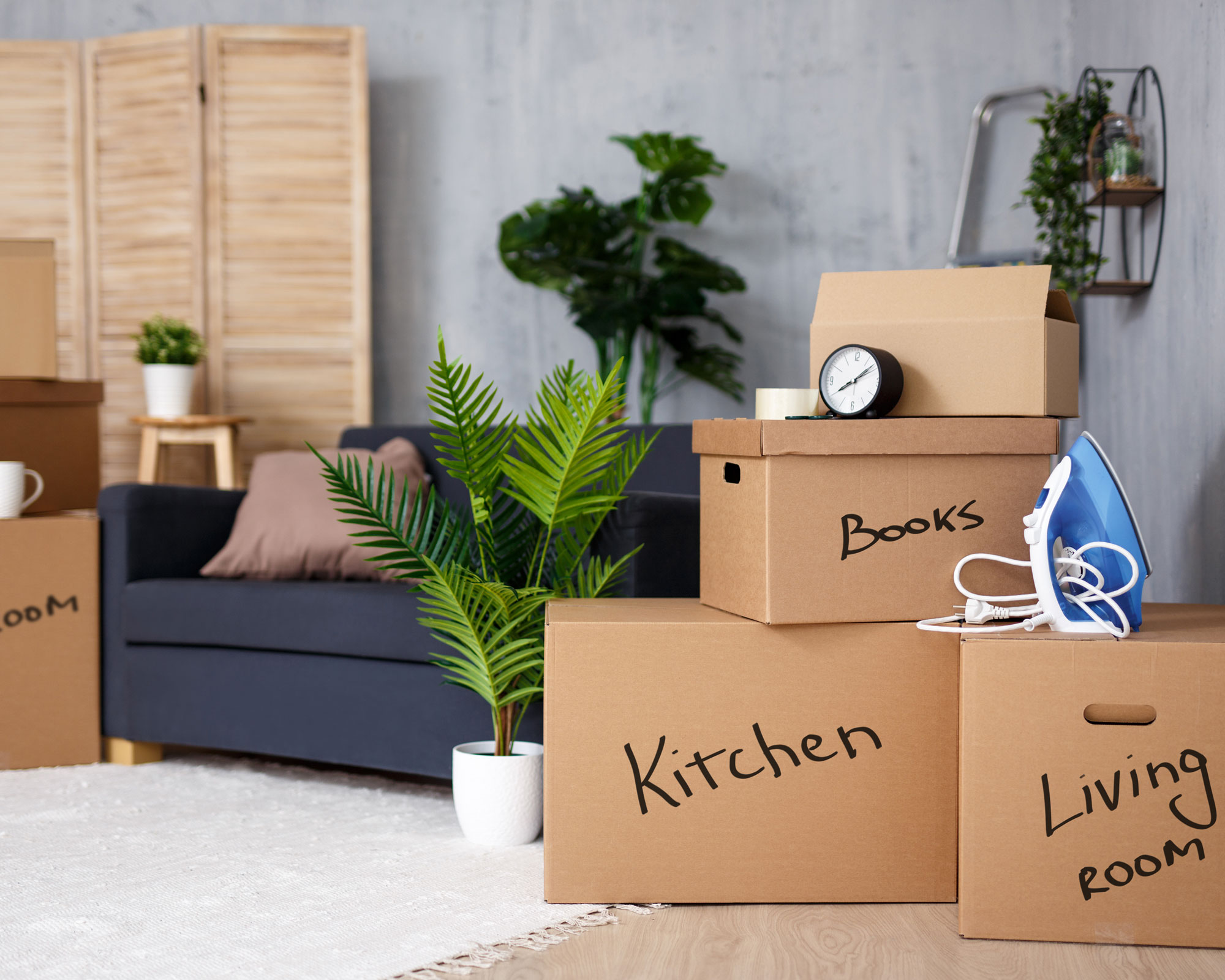
Nikolay advises to start planning and 'pre-packing' around eight weeks before you move, so you can 'start slow and prep smart'.
He says, 'During this period, pack any seasonal items, such as off-season clothes, ski gear, and summer stuff, depending on the time of year. You should also pack any rarely used items, such as fancy china, holiday decorations, keepsakes, extra bedding or books you won’t read soon.'
I can attest to this as we always had two enormous display cabinets with my parents' wedding china and serveware for big parties, and they were the first items we packed carefully, using bubble wrap and small boxes that would fit back inside the cabinet, meaning we didn't have to lose floor or surface space to store the resulting packed-up boxes for the move.
Nikoly also advises thinking about your garage, attic and shed. 'These are usually hotspots for early packing,' he explains. 'Tackle any tools, garden gear, and storage bins.'
It's the perfect time to declutter your garage, and organize your attic before you move.
He also says to label everything by room and contents, for example, 'Guest Room/Holiday Decor'. When you arrive at your new house, you'll then be able to place or direct the boxes to their correct rooms or storage space, making unpacking easier down the road.
Packing up this much time ahead of your move is also super helpful for renters. Adam Hamilton, co-founder of REI Hub says, 'It helps you identify if there was any minor damage you may have caused, which you then have more time to fix before moving out. For example, you have time to go purchase spackle to apply to any small holes in the wall you created from hanging up decor.
Nikolay adds, 'Donate, sell, or bin anything you don’t want in the new place. Start collecting or buying sturdy boxes, packing tape, bubble wrap, markers and labels
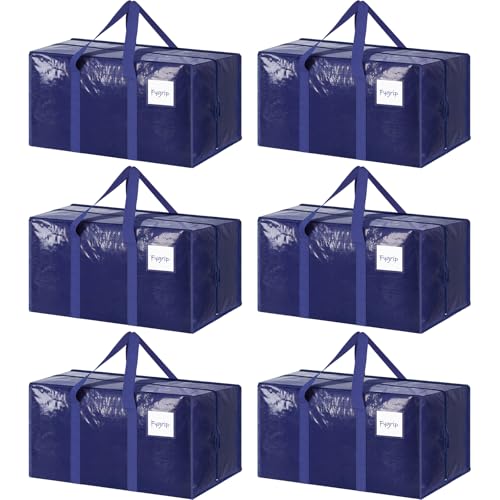
With strong handles and zippers, these are perfect for packing away out of season clothes, bedding, fancy dress, linens and towels. Keep them in a climate controlled space to avoid mold, mildew or pest problems.
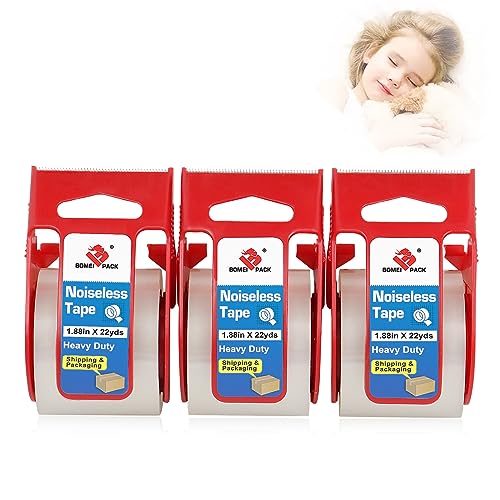
Don't skimp on price when it comes to packing tape. Get strong ones and buy a multi-pack so you can have the supplies you need in multiple spaces in your home and pack as your schedule suits.
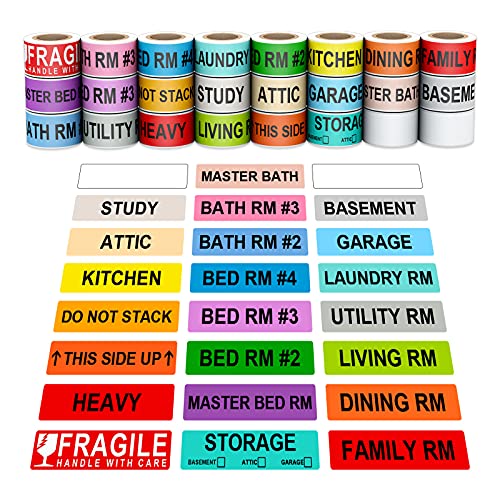
Save time and stress. Go for pre-printed labels that are bright and easy to spot to help you keep track of what is being packed where.
Millie Hurst, contributing editor at Homes & Gardens has moved home 16 times. She says, 'Ornaments are a fairly broad category, but packing these up first (a lot of vases, picture frames, candle holders, candles, trays, and anything else that could be defined as decor) forced me to be more methodical, rather than hopping between different rooms and items.'
During a house move, she gradually works to fill 'fragile boxes', one by one. Keep these somewhere with low traffic and be careful how you stack them to avoid any pressure on glass, crockery, and sentimental items whilst you continue packing to move home.
If you have lots of delicate, breakable items, ensure you have enough bubble wrap, which you can pick up from Walmart, and newspaper on hand. You can also cushion the bottom of boxes with towels, bedding, or out-of-season clothes, killing two birds with one stone, so to speak.
Meanwhile, Mandi St.Germaine, Co-Founder of MBS and The Woman Beyond the Cape is a retired militry spouse well-versed in moving home, and often doing it alone. She says, 'As a retired military spouse who's changed residences every few years over the last two decades, I've learned that the secret to a seamless transition is getting a jump on it and doing it in focused batches.
'I start by packing off-season clothing, holiday items, and sentimental items that we won't use right away, typically two months ahead.'
What to pack six to four weeks before moving home

Moving pro Nikolay advises using a room-by-room strategy. He says, 'The goal is to start working through lesser-used spaces. Focus on the guest rooms, home office, formal dining room and any space you don’t use daily.
'Pack any DVDs, extra toys, hobby supplies and non-essential electronics. Use the batch strategy. Work one room at a time, start with non-essentials and always finish boxing a room before moving to the next.
With guest rooms in particular, Ben Steinsholt, founder of Steinsholt Delivery says to 'leave the bed and linens available just in case you have a last minute guest stay over.'
When it comes to packing up your other linens and best bed sheets, Homes & Gardens' bedding expert Emilia Hitching adds, 'My number-one tip when moving a mattress from one home to the next is to wrap it in a mattress encasement, rather than a mattress protector.
'Even the best mattress protectors only cover the top and the four sides of a mattress. A mattress encasement covers the top, the bottom, and all four sides for 360-degree protection from the dust, dirt, dander, bed bugs, and bacteria that abound in new properties.
'I usually recommend the SureGuard Mattress Encasement, which boasts more than 16,000 five-star reviews on Amazon for zipper strength and ease of installation. You can achieve a similar effect for your bedding by packing sheets, pillows, and comforters in trash bags. It isn’t glamorous, but it should inhibit moisture, mold, and mildew from taking root inside your soft furnishings.'
This is also the perfect time to 'finalize moving logistics, whether you're hiring movers or doing it yourself,' says Ashlyn Cook, Director of Operations, at UniMovers.
What to pack three to two weeks out from moving
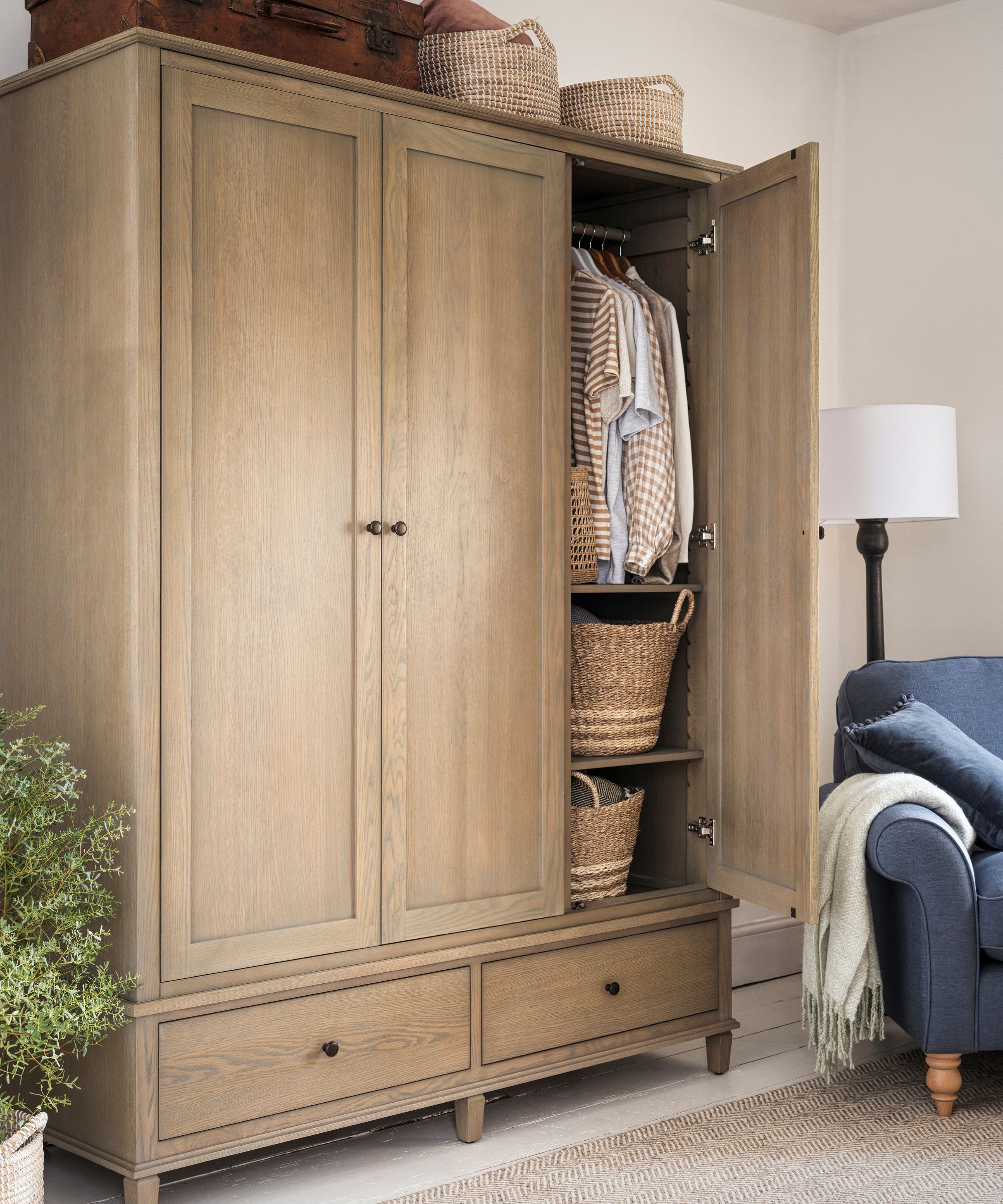
This is where you can expect the packing to ramp up and will form the bulk of your packing. Expert home mover Nikolay says, 'The goal is to tackle the majority of belongings during this period so you’re not overwhelmed later. Pack the closets with most of your clothes, but leave 1 to 2 weeks' worth of clothes out.
'Pack the pantry and all the non-perishable food items in it that you won’t use. Think about your bathroom extras, such as towels, backup toiletries, and medicine cabinet but keep just the essentials out. Start packing your children’s rooms.'
He also advises leaving a small 'essentials' kit and packing the rest. 'During this part of the packing, it’ll be very helpful to create a do not pack zone or box with important documents, chargers, passports, current bills and other essentials.'
I am chronically ill so I found this phase the hardest to complete. It's when I sought help from relatives, friends, and did a lot of team work with my husband in our five most recent moves. You do not have to go it alone and taking some personal time off to pack in peace can make the world of difference instead of trying to pack for a house move around work, school or other commitments.
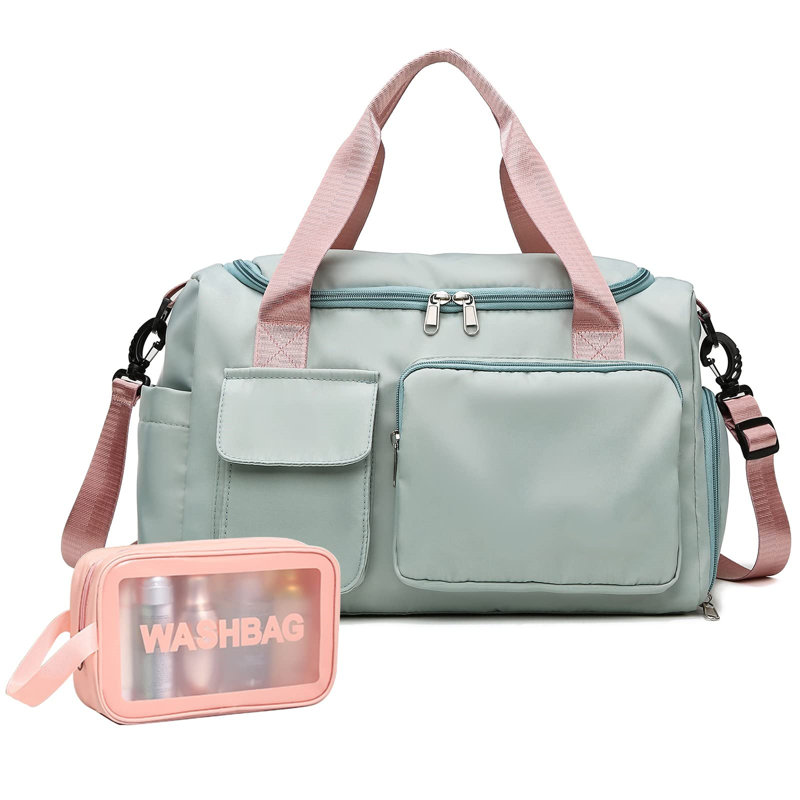
Use a gym or weekend bag with lots of useful compartment to pack those essentials. I always treat moving home like an enormous vacation and pack a suitcase for the moving 'trip' to make it easier on arrival at the new house, as well as a 'carry on' bag to stay with me in the final days and then come with me in the car when relocating.
What to pack one week before the move
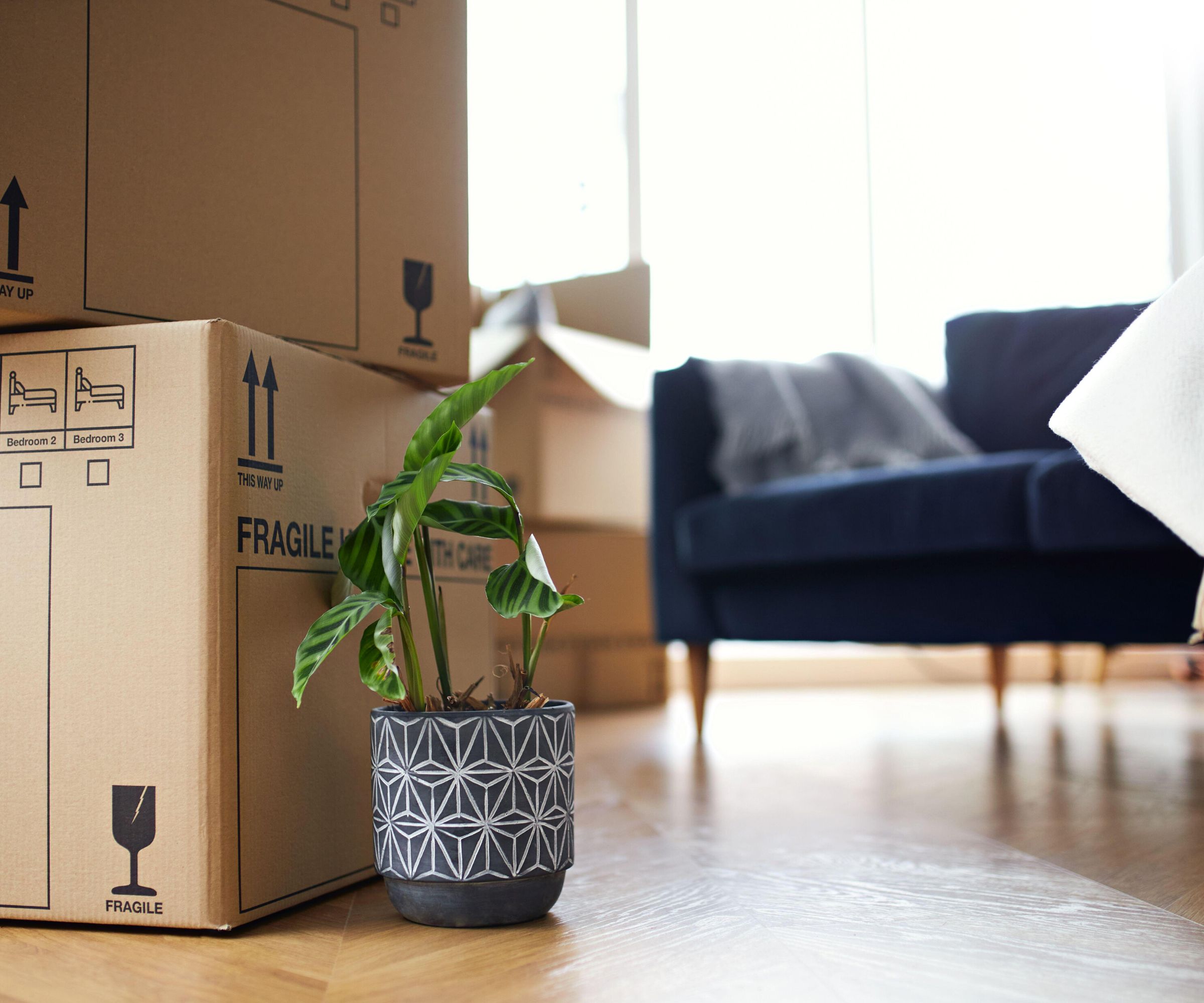
This is the time to pack the final rooms and an essentials box. Nikolay says, 'The goal is that only the essentials should remain unpacked. Pack any kitchen gear but leave out just one pot or pan and one plate or cup per person, all but the clothes you’ll wear this week, tech gear, TV and speakers.
'Pack your essentials box with a kettle, tea and coffee, mugs, cleaning supplies, phone chargers, tools, such as a screwdriver, scissors, tape, toilet paper, soap, a towel, pajamas and bedding.'
This is also the time to make sure your regular prescriptions have been filled and you have enough to get through the first couple of weeks in your new home, alongside a first aid kit in case of any cuts, bumps or scrapes. Target has a complete First Aid Kit that's just the ticket.
You can also pack important items and move them yourself on the day so they never go out of site and are not at risk of being lost. In all our house moves, our valuables, passports, birth certificates, and any other hard-to-replace or particularly fragile items were loaded up into our own car and never left our sight.
Retired military spouse Mandi adds, 'I always have a 'first week' box with pjs, coffee maker, toilet paper, chargers, etc. This way, we have our necessities for the first week in the new home.'
What to pack the day before you move house
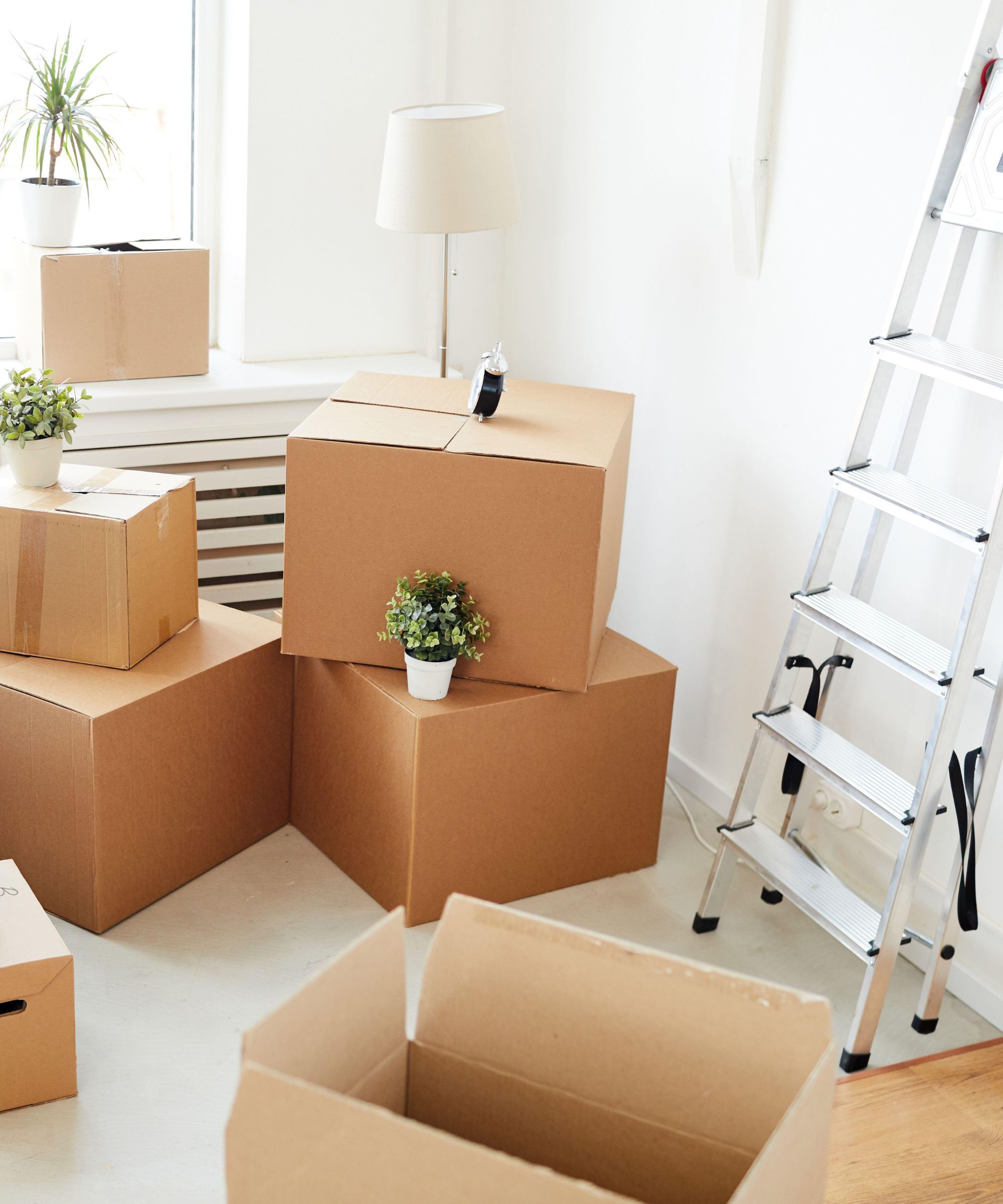
At this point, the goal is to be ready to move so take down any curtains or blinds that are coming with you and unplug all electronics. Nikolay adds, 'Wrap cables, disassemble any remaining furniture and if needed, take apart the beds – or wait until the morning if it’s more convenient for you.'
My husband and I spent plenty of 'night befores' sleeping on mattresses on the floor to do away with the time-consuming and physically tiring task of dismantling beds on the day of the move.
Of course, you can also call the pros to help but it's possible to do it all yourself by working down a sensible packing countdown. Reusable cable ties from Amazon will come in handy for keeping loose wires together. Don't forget to put the cool packs in the freezer for transporting your final perishable goods tomorrow.
What to pack last when moving house
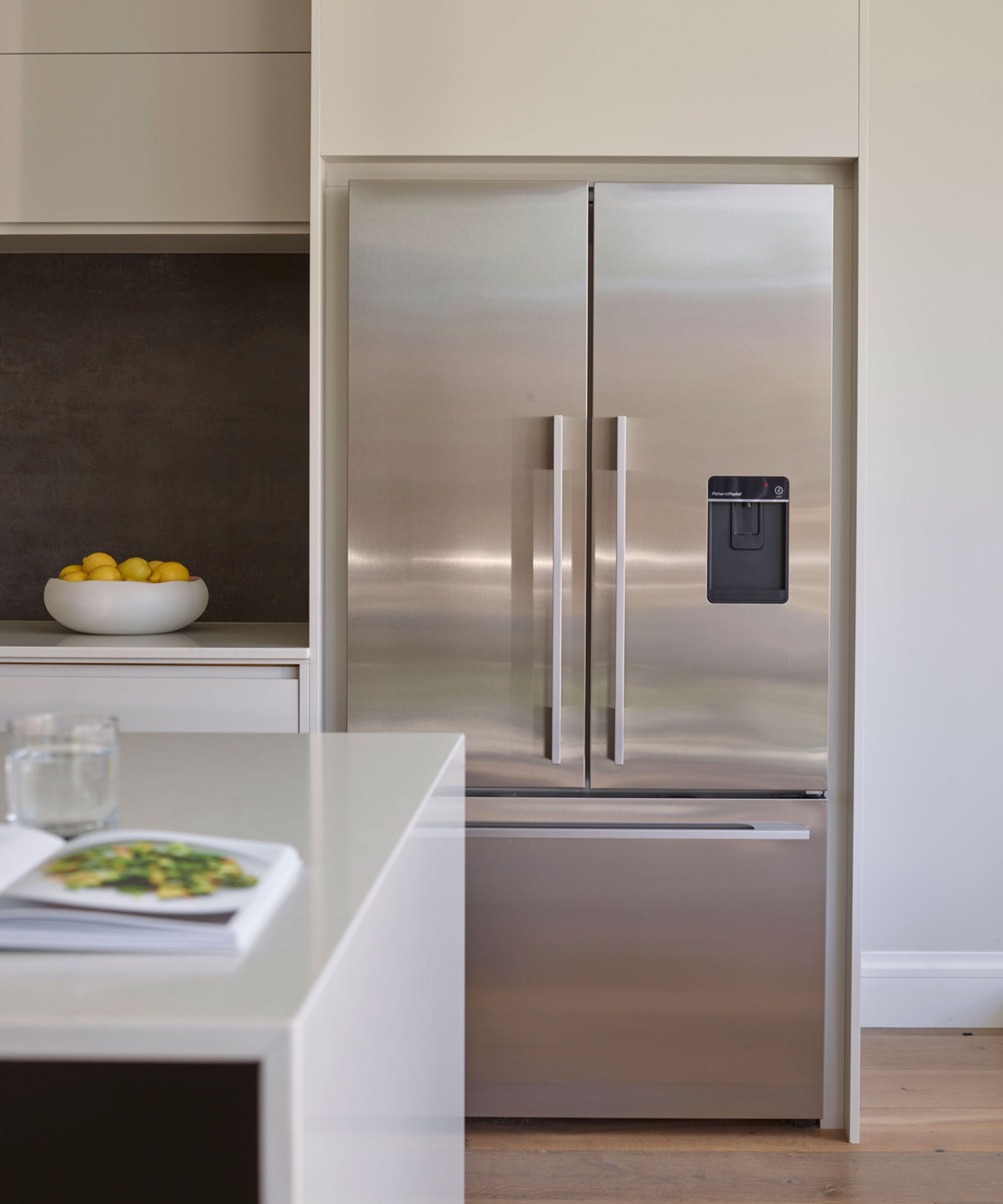
Contributing editor Millie hurst left a set of cleaning supplies on hand to pack on the day of the move to make it easy to clean the new home before moving in. This could include a multi-purpose spray, microfiber clothes, paper towels, and heavy duty trash bags, all available from Walmart.
For me, the last items I packed were the small number of kitchen items, any surplus clothes, or laundry. If there was anything leftover in my freezer, I packed it into cool bags and made the freezer the last item to leave the house to stop food spoiling en route. Cool packs, also from Walmart, will help.
You've probably been excellent with labeling up all your boxes but it's ok to dedicate a small one at the end to anything random leftover in the home. Check every drawer, shelf, cabinet, and look behind doors to ensure you're not missing anything.
Packing can feel never-ending, but doing it properly will make it much easier on the other end when you are unpacking and need to find the scissors, your toothbrush, and so on. On that note, lots of professional organizers will also tell you to make an overnight box with essentials for when you arrive.
FAQs
When is it too early to start packing?
In my experience, packing more than two months ahead can create its own stress as you have to keep those boxes somewhere, though it's personal. If you don't mind having a stack of boxes in each room, go for it! If visual clutter makes you feel stressed, beginning to pack up non-essentials first 4-8 weeks in advance will be just fine!
Next, delve into our cleaning tips so you can leave your old home in a great state for the new owner or tenant, and be able to freshen up your new home with confidence and ease to make it your own as quickly as possible.







